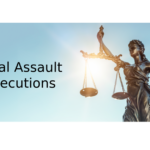Do Lawyers Work As Hard for Legal Aid Clients as Private Clients?

Legal Aid is a government-run organisation that offers financial assistance to people who need legal help, but may not be able to afford to pay a private lawyer.
Legal Aid is means tested and if assistance is granted, usually pays for part of the legal costs involved in dealing with a criminal matter.
However, as a client, you will still be required to pay a small contribution, the amount of which will depend on your personal and financial circumstances.
There are a number of lawyers who work for Legal Aid, and in addition to them, Legal Aid sometimes pays private lawyers to take on legal aid work if their lawyers have a large volume of work, or if the nature of the case requires a particular specialisation.
When you get a private lawyer through Legal Aid, you won’t be able to choose your practitioner but the lawyer who submits the legal aid application will normally get first priority.
Your lawyer will ultimately be assigned to you by Legal Aid and will work on your case alongside those of other clients, including private clients.
Although the amount that criminal lawyers receive to undertake cases for Legal Aid is substantially less than they would receive from private clients, criminal lawyers are legally required to work as hard on legal aid cases as on privately funded cases.
Although private lawyers may be criticised for taking on Legal Aid cases and not prioritising them or spending adequate time on them, this absolutely should not be the case.
As a Legal Aid client you are entitled to receive the same level of service as any other client, and if you have a genuine reason to believe that you have not received the service you are entitled to, you can make a complaint.
What types of criminal cases do Legal Aid lawyers take?
Legal Aid will help with the cost of a number of different legal criminal matters, not just serious charges and court appearances.
If you are eligible, Legal Aid lawyers can help you with:
- Legal advice on a range of criminal matters.
- Representation in court for serious and more minor criminal charges.
- Assistance and advice preparing for a court appearance and gathering evidence to support your case.
- Specialist services including representation at drug court, advice and representation for prisoners and a children’s legal service.
If you are unsure whether your legal matter would qualify you for Legal Aid, you can speak to a representative from the organisation and get free legal advice over the phone.
The application process for Legal Aid can be done online and a private criminal lawyer can assist you with filling out the application.
You should hear if you have been accepted for a grant within two weeks.
It is advisable to seek legal advice before applying wherever possible, as the advice may tell you whether or not you are likely to be able to get Legal Aid and potentially help your application.
Can I give my legal aid lawyer extra payment?
Lawyers are not allowed to accept ‘side payments’ from Legal Aid clients over the amount which clients are required to contribute by Legal Aid (usually $75).
Accepting additional payment from Legal Aid clients is an offence, and one that can lead to criminal proceedings if a lawyer is found to have been accepting extra payments from Legal Aid clients.
The rates which lawyers receive through Legal Aid are determined by a set fee schedule and are not set by the lawyer.
Fees vary depending on whether your lawyer is dealing with the local court, children’s court or district court.
There are other provisions for lawyers dealing with complex criminal matters, or those that are being heard at the supreme court.
When you are granted the services of a private lawyer through Legal Aid, the payment (apart from your contribution) is all handled by Legal Aid.
Your lawyer will be paid directly for their time by the organisation.
If your grant is not going to be sufficient to cover the cost of your case, your lawyer is obliged to let you know and will normally make an application to the Legal Aid for an ‘extension’, which is an increase to the money granted.
What other standards should my lawyer abide by?
Legal Aid lawyers are required to abide by certain professional standards concerning their conduct and interactions with clients.
Once you have been granted legal aid, your lawyer should meet with you as early as possible and no later than four weeks after the grant being provided.
Your lawyer should also communicate with you in a timely manner and respond to telephone calls and other correspondence within five working days.
It is important that your lawyer takes time to discuss the different elements of your case with you and listens to your instructions as to how you want to proceed.
Legal Aid lawyers are required to declare any conflicts of interest they have which might impact your case.
If there is a conflict of interest you may be reassigned to a different lawyer.
What if I have a complaint about my legal aid lawyer?
If you are unhappy with the level of service provided by your Legal Aid-funded lawyer you can make a complaint to Legal Aid outlining the nature of your concerns.
It helps if you try to provide as much information as possible, so that your complaint can be investigated thoroughly and effectively.
Legal Aid aims to resolve complaints within 21 days, and if you are still not happy with the outcome you can make a complaint to the Office of the Legal Services Commissioner, which will investigate further.
Legal Aid is a service that is intended to make quality legal advice and representation affordable for those who need it and might otherwise be disadvantaged.
Lawyers are required to spend as much time and attention on Legal Aid cases as they do on privately paying clients, and to treat all their clients fairly and without discrimination.
If you are facing a criminal matter and think you might be eligible for Legal Aid, make sure you speak with a lawyer as soon as possible.
The earlier you can seek legal advice the more time you will have to prepare your case and decide how you want to proceed.






